Cross-Cultural Change Agents
In May, L&C undergraduate students headed to Puerto Rico and Oaxaca, Mexico, for service learning trips organized by the Center for Social Change and Community Involvement.
Global Learning

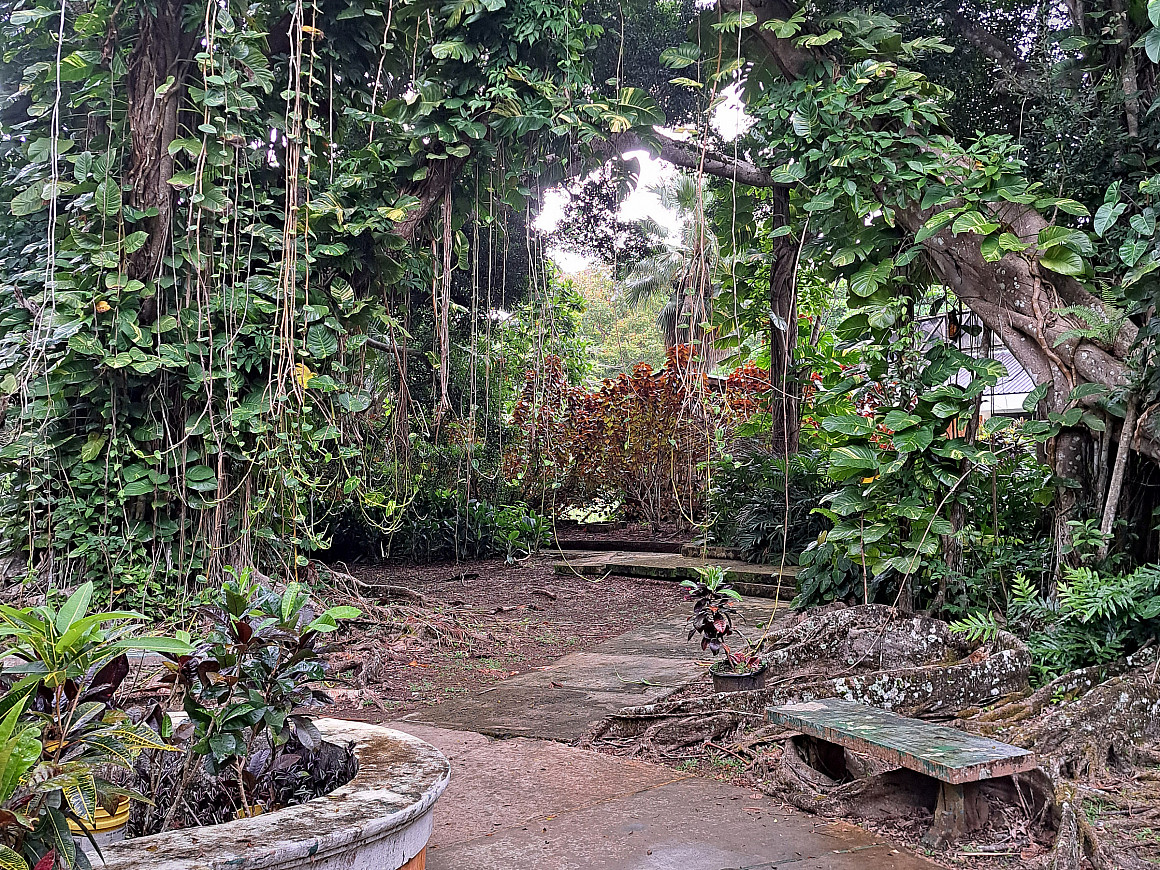
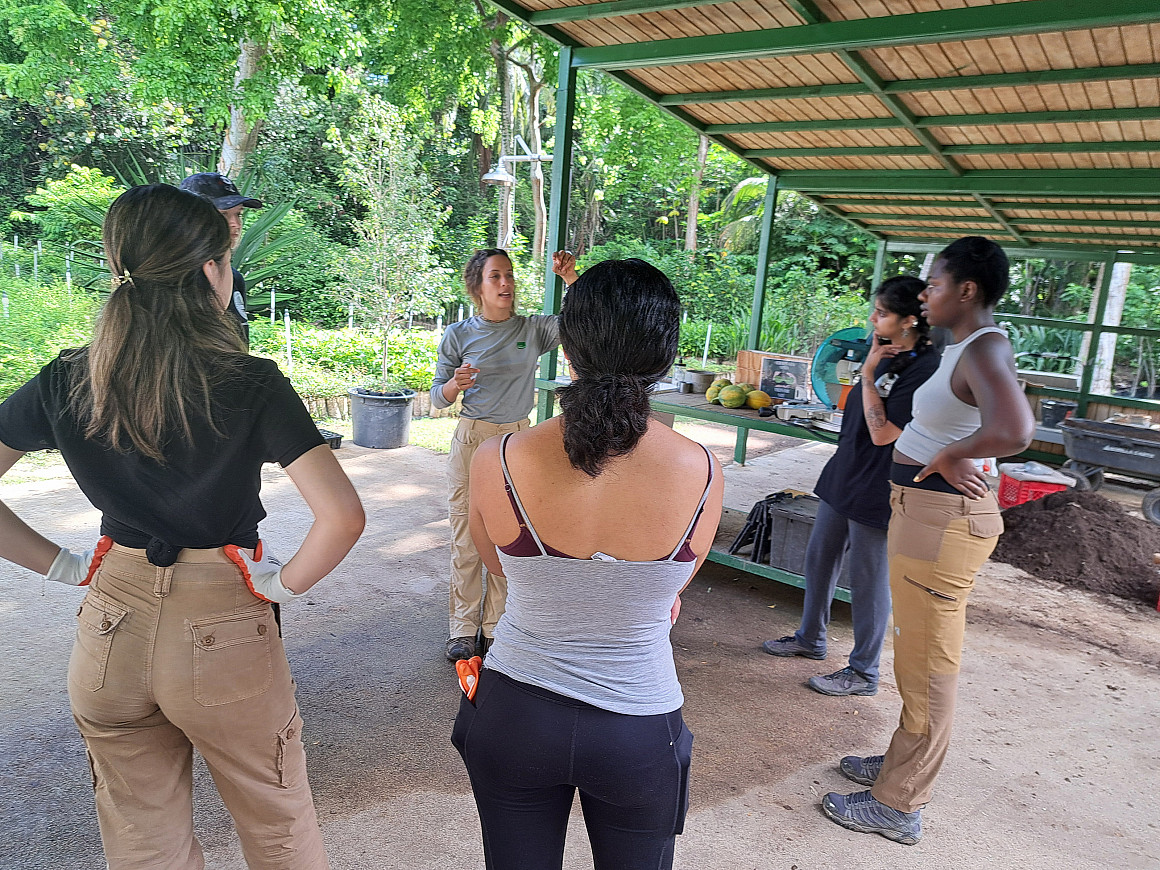
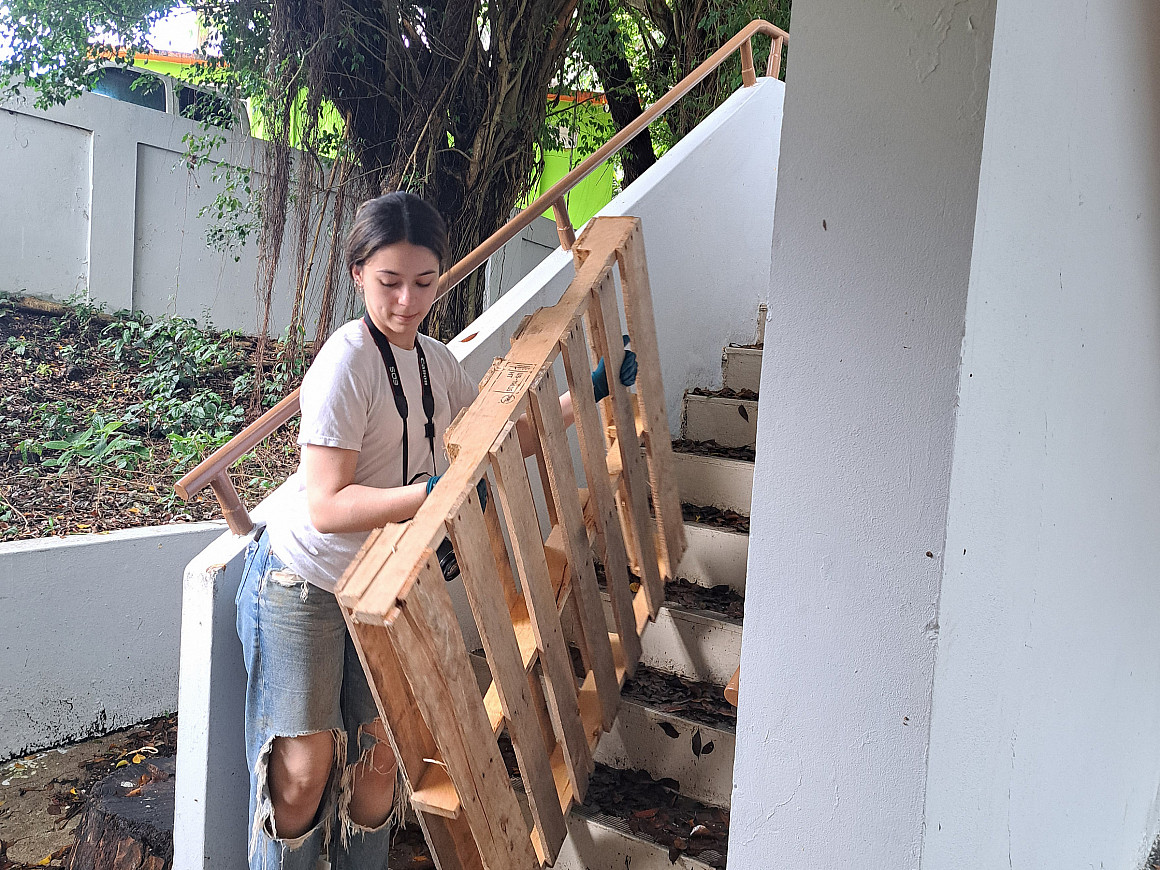
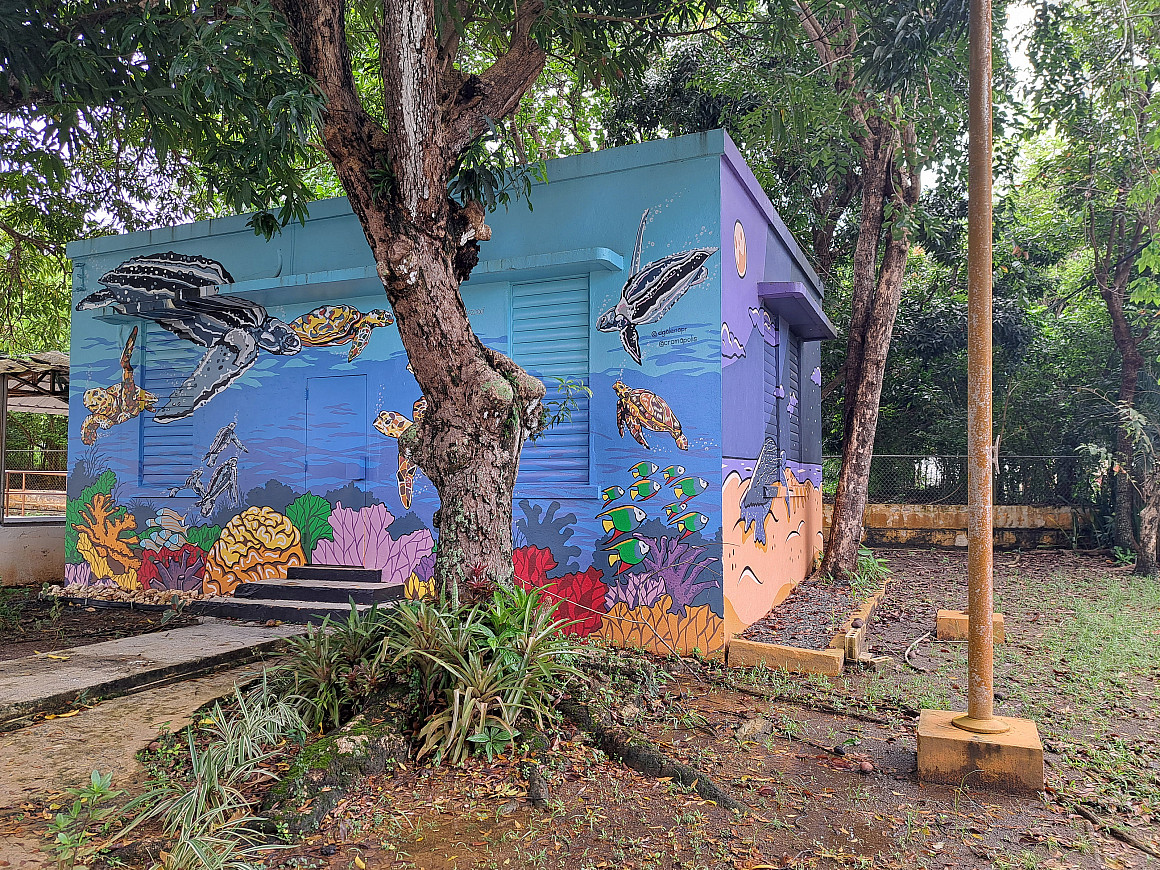
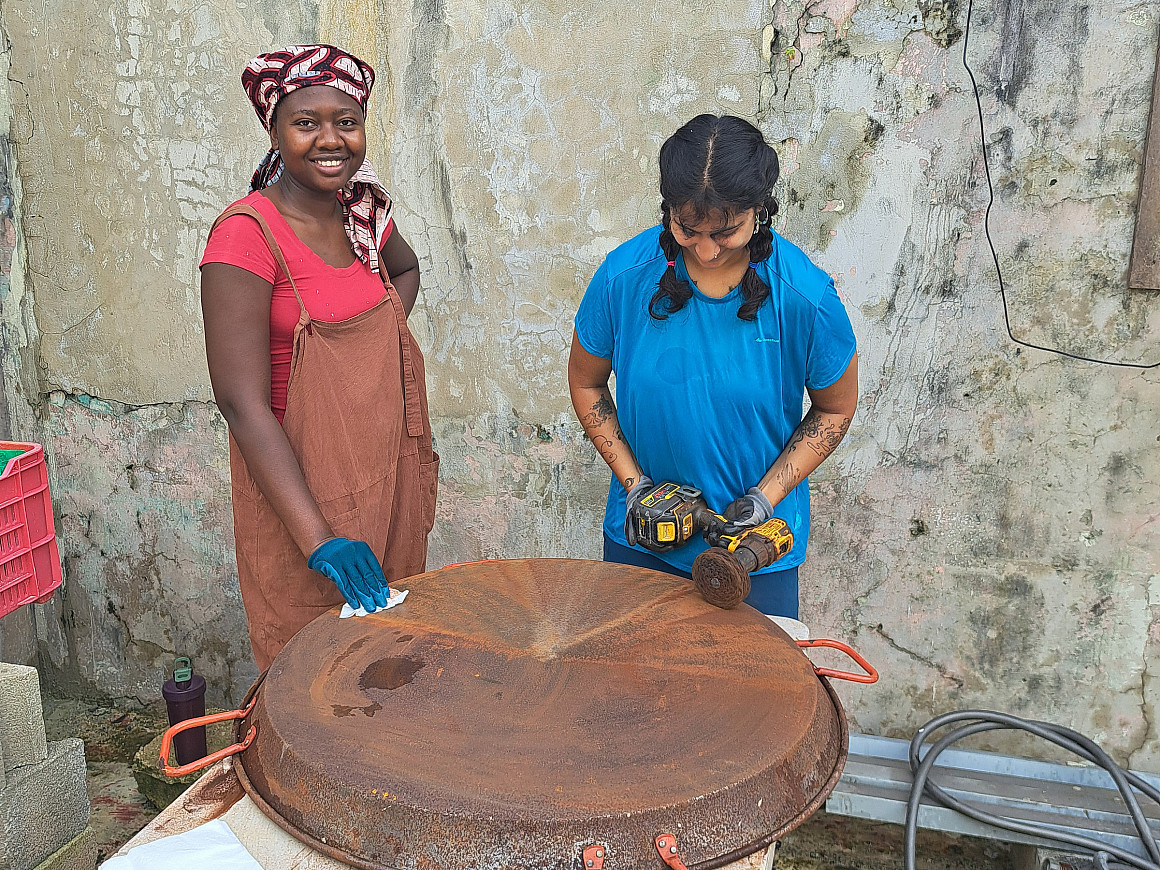
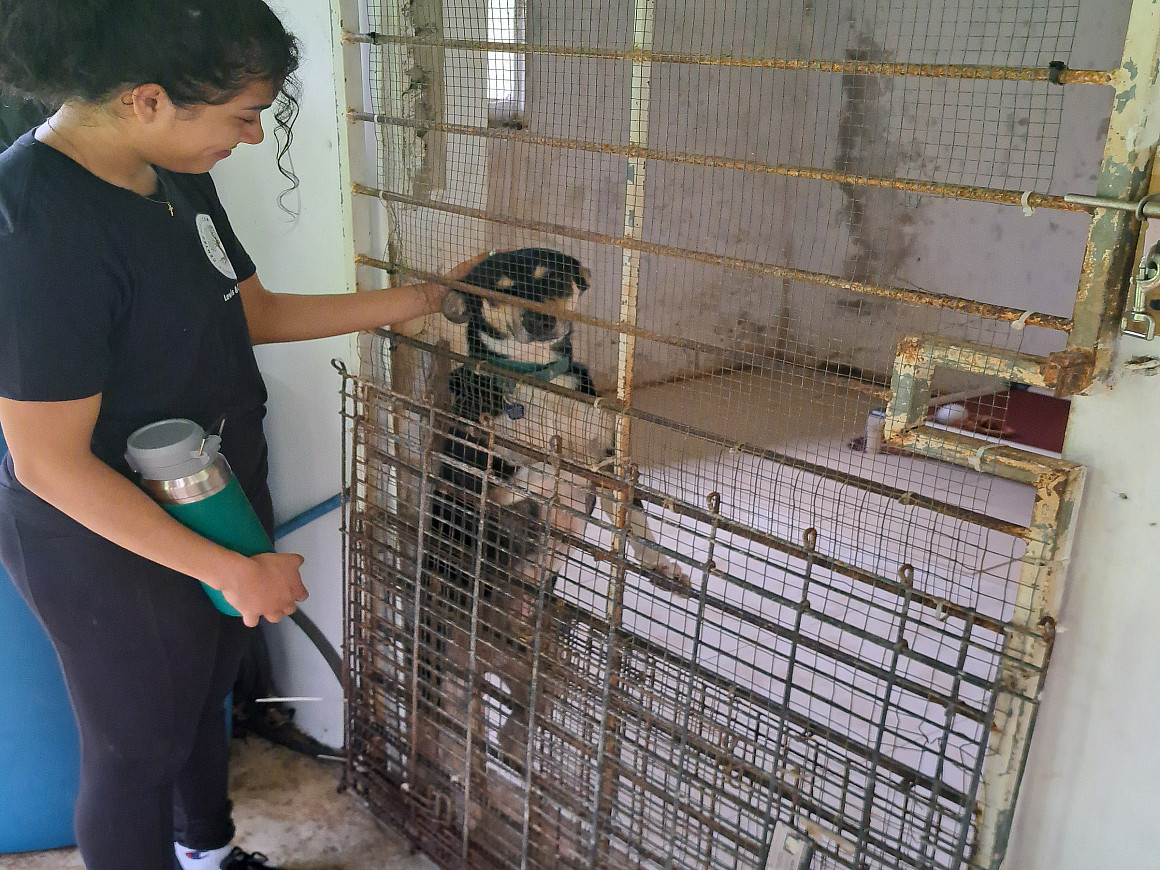
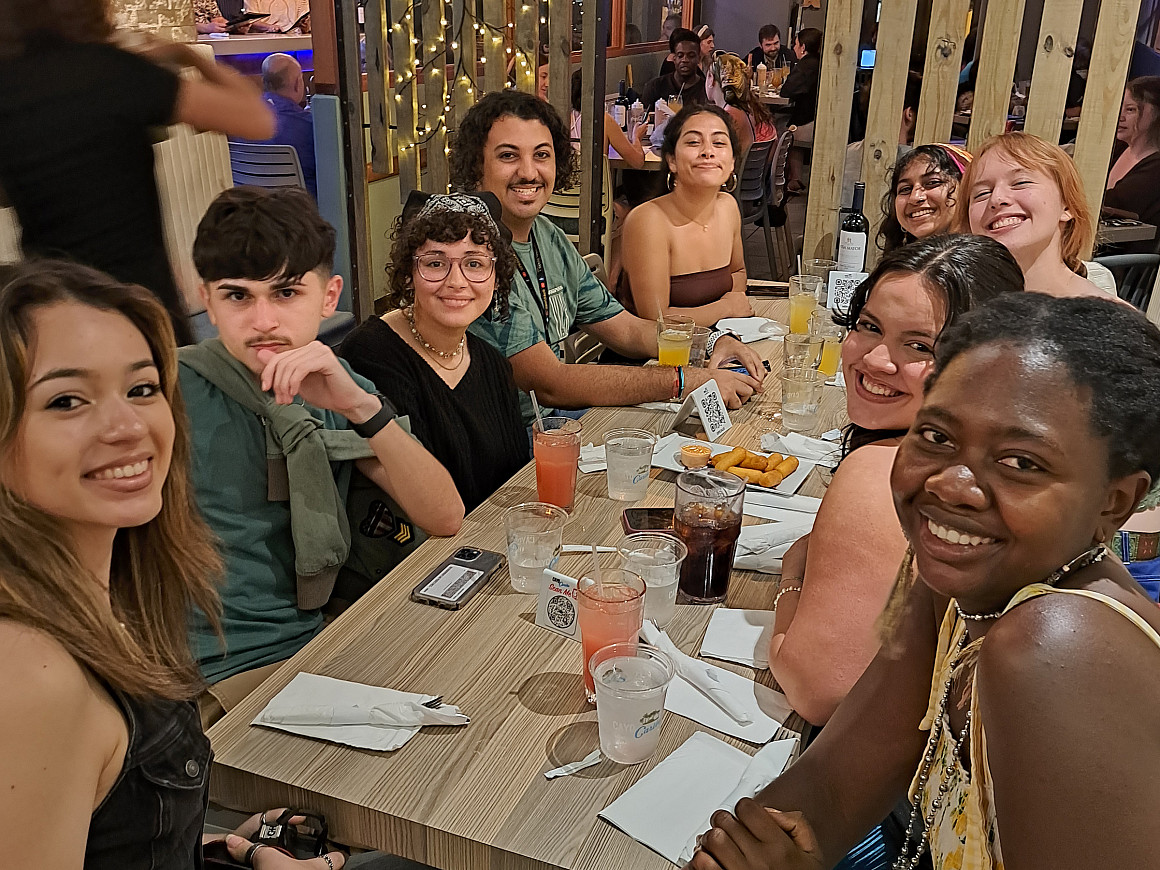
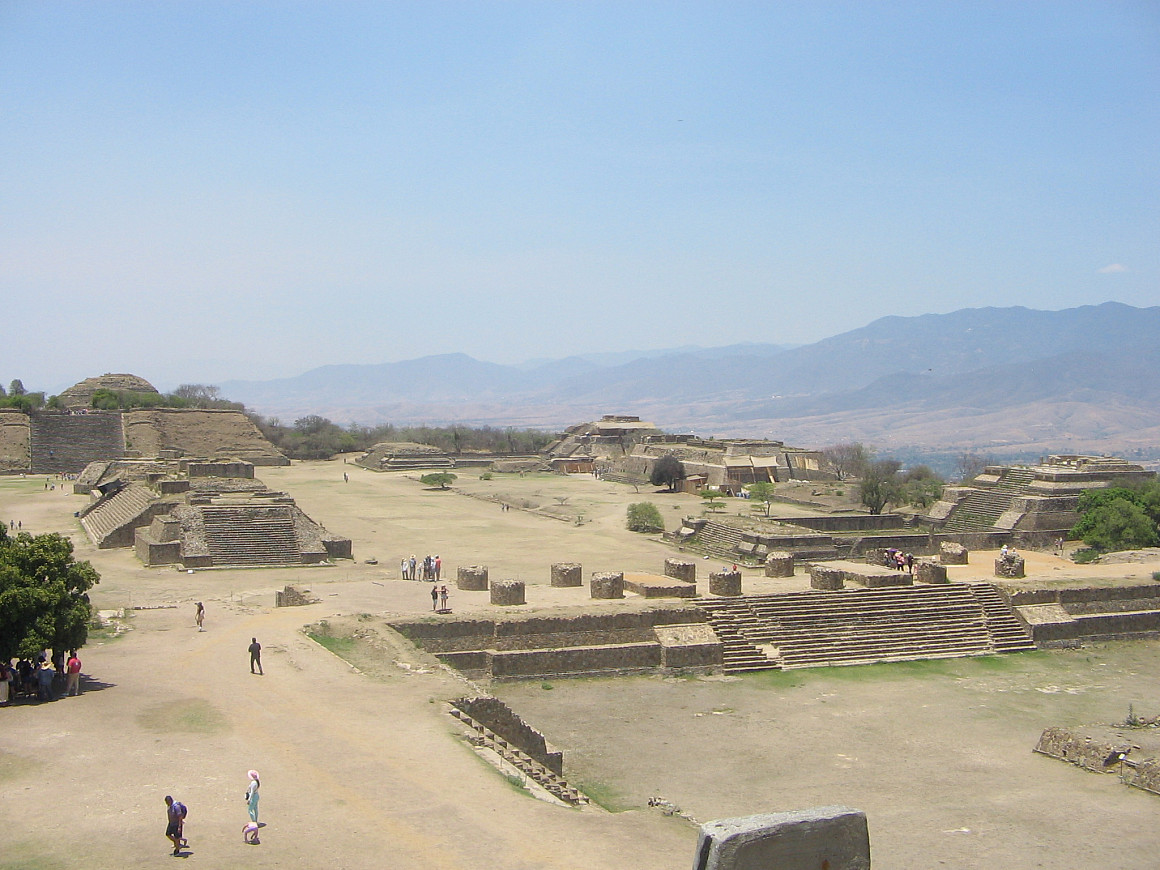
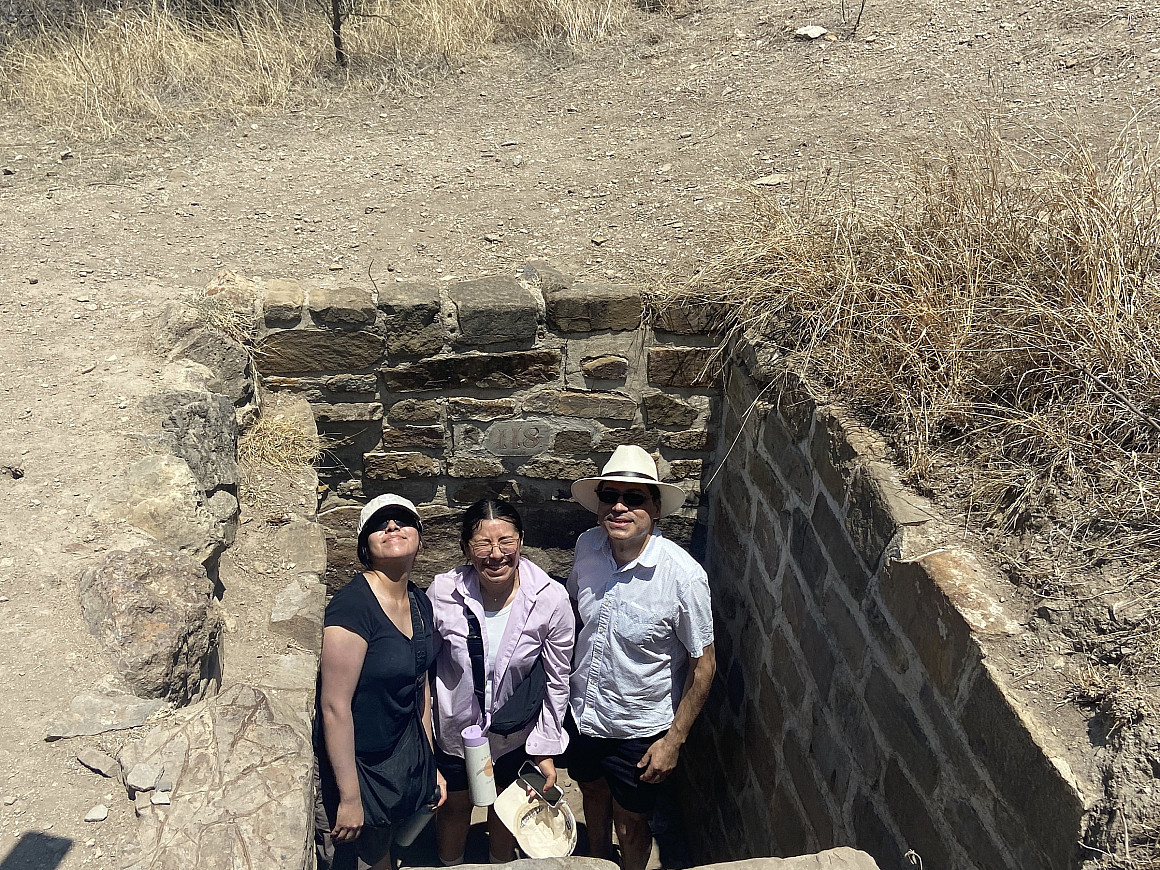
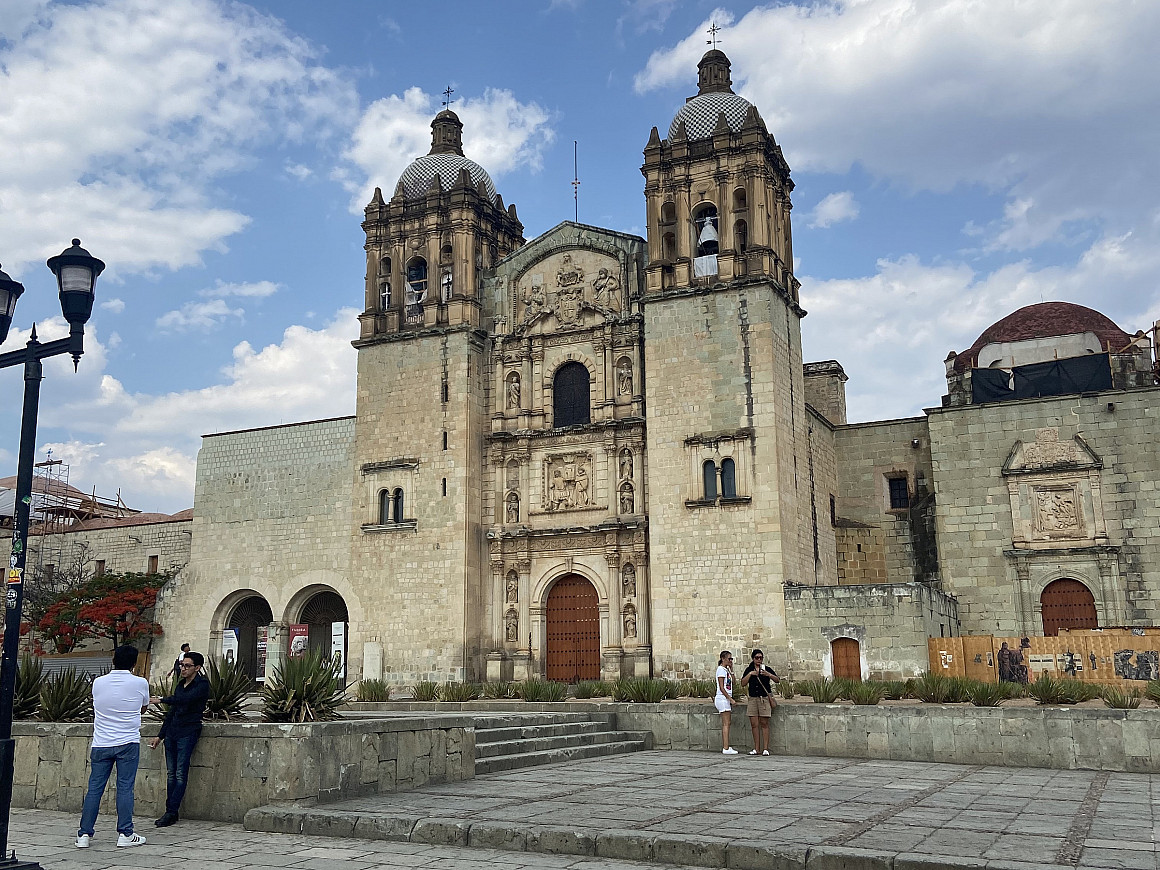
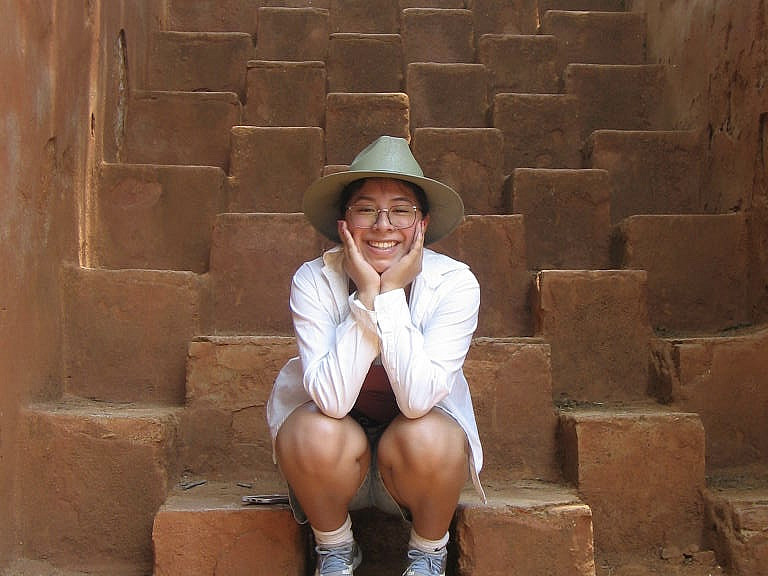
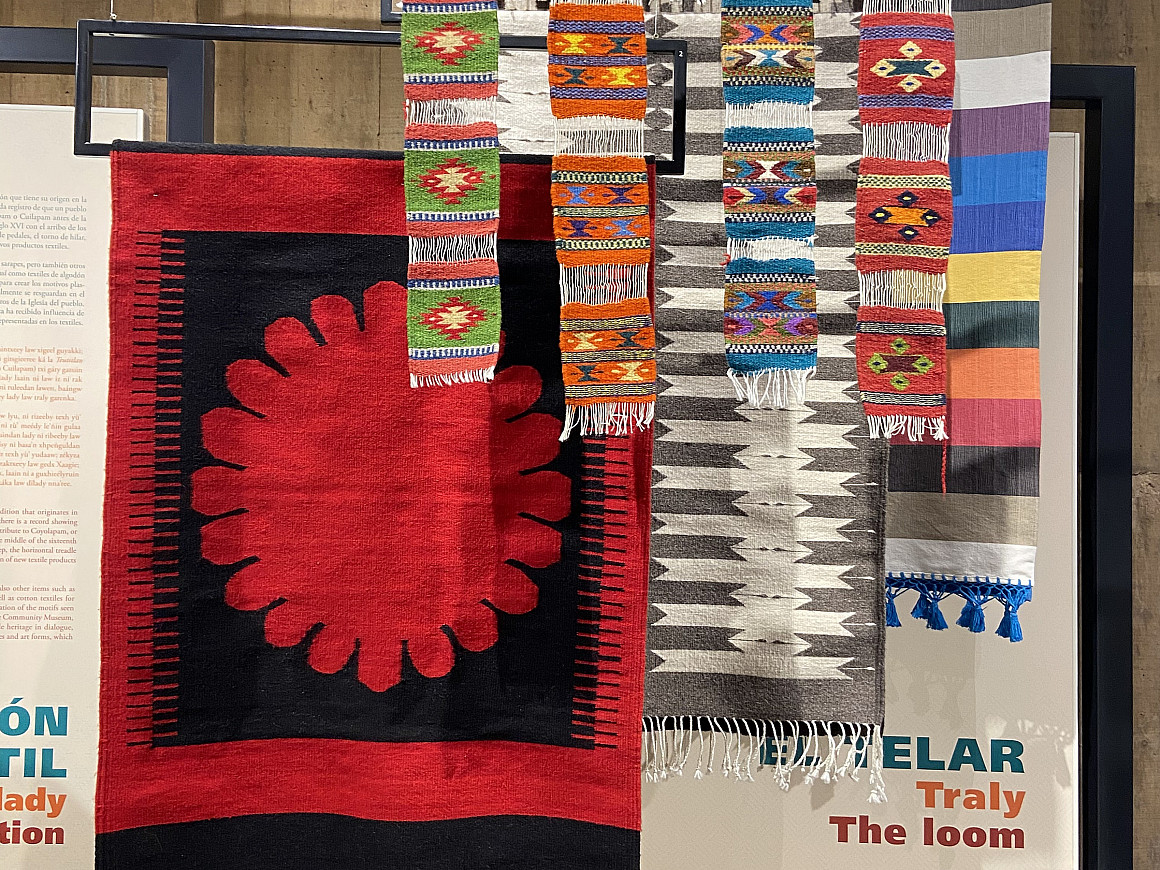
When Kiara Gonzalez BA ’27 discovered that Lewis & Clark was offering an immersion program to Puerto Rico at the start of summer vacation, she knew she needed to apply. “This trip incorporated some of the most important aspects of my life,” she says. “My island, my culture, my people, and my new home away from home at Lewis & Clark.”
The Puerto Rico trip was one of two trips offered by L&C’s Center for Social Change and Community Involvement in early May. The center spearheads a variety of service-learning experiences for Lewis & Clark undergraduates. These immersion programs connect students with opportunities to practice civic engagement, social change, and global learning.
This year, five students participated in each trip, which were one-week long. The Puerto Rico trip was led by Andrea Salyer, director of the center, and Lati Savadogo BA ’24. The Oaxaca trip was headed by Freddy Vilches, associate professor of Hispanic studies.
Lewis & Clark’s immersion trips are developed collaboratively by center staff, student participants, and community partners. The programs are designed to support diverse communities while advancing cultural competency and sensitivity.
“We work with community partners who have different, and sometimes even opposing, missions on how to go about organizing for social change,” says Salyer. “Our goal is that students will see the nuance in different approaches and reinforce our students’ commitment to social activism in their own lives at L&C and beyond.”
Puerto Rico Trip
For the Puerto Rico trip, Lewis & Clark partnered with Communities Collaboration International, which develops volunteer programming based on the unique needs of each local community.
L&C students took part in a variety of activities, including transplanting plants at a tree nursery, leading student activities in Spanish at a Boys & Girls Club, working at a dog shelter, cleaning up a community center, and engaging in rainforest trail maintenance.
For Gonzalez, one of the most memorable activities of the trip was volunteering with Tenedor Social to feed the community. “Food is a very important part of the Puerto Rican culture and our identity,” she says. “Being able to collaborate with a nonprofit to cook paella, one of our traditional dishes, and seeing the amount of hard work and love that is put into every little detail of this project was very meaningful to me.”
Oaxaca Trip
Lewis & Clark developed the Oaxaca trip with the assistance of Loren Rice BS ’60, who is the advisory director of Casa de Kids, one of the program’s partnering organizations.
L&C students engaged in several cultural exchange activities, including working in an orphanage, interacting with high school and college students served by Casa de Kids, touring historical sites, and visiting Universidad Autónoma Comunal de Oaxaca, Mexico’s first officially recognized university created and led by Indigenous people.
For Azucena Morales Santos BA ’24, the immersion trip to Oaxaca was the realization of a personal goal to visit Mexico, her parent’s home country. Originally, she thought she would get there by attending an L&C language-intensive program in Mérida, but her plans were derailed by a family emergency.
Finally, at the end of her senior year, she got her chance. “The Center for Social Change and Community Involvement provided me with the opportunity to not only go to Mexico, but to Oaxaca, Mexico, which is the state my parents are from,” says Morales Santos. “I was thrilled to apply what I had learned in my Hispanic studies, sociology and anthropology, and history courses. It was truly a gift to have this opportunity right after graduation.”
A Multifaceted Experience
The Center for Social Change and Community Involvement designs a rich experience for each trip, which includes pre-trip activities; on-the-ground group discussions and daily reflections; and post-trip analysis. This fall, participants will reconvene to discuss how to move their activism forward and deepen relationships with international partners.
Participants also learned more about themselves. “Our projects required a lot of mental strength and physical stamina. At the end of the day, this is what made each project so rewarding,” said Gonzalez. “Working so hard during the day for the betterment of the community and then getting these small moments to ourselves at night to reflect and bond with each other made this an invaluable experience.”
For others, the trip contributed to their career exploration. “A long-term goal of mine is to get my doctorate that is centered on the studies of the Latino diaspora in the U.S.,” says Morales Santos. “Studying about Oaxaca and the inequities communities face is different from living and experiencing it. The immersion program taught me that there’s so much I don’t know, and it’s exciting to recognize the limits and opportunities that have risen from this experience.”
Planning for the 2024–25 immersion programs is still under way, but it’s expected that upcoming trips will be held over spring break. Salyer is excited about the possibilities. “It’s a transformative experience for our students,” she says. “And it’s also a good opportunity for Lewis & Clark to deepen our relationships with communities doing incredible social change work across the globe.”
More Stories

New Leadership
Welcoming the New Dean of Lewis & Clark Law School
On January 2, 2025, Alicia Ouellette took the helm as the Jordan D. Schnitzer Dean of Lewis & Clark Law School. “Dean Ouellette’s expertise and visionary leadership are exactly what is needed to build on the law school’s success and lead it into the future,” said Robin Holmes-Sullivan, president of Lewis & Clark.

Student Success
Scholarship Inspires Student to “Fan the Flames of Tribal Sovereignty”
Vincent Montanic Shoeships is this year’s Nelson D. Terry Scholarship recipient. “I am close to achieving my dream of becoming a practicing attorney, and I look forward to fanning the flames of Tribal sovereignty through upholding federal laws that make Tribes distinct and unique.”

Place-Based Learning
From Trash to Treasure: Creating Art From Waste
Cara Tomlinson’s Art and Ecology class uses waste materials from around Portland to create beautiful and meaningful works of art. This course offers a fresh approach to creative practice, merging art and ecology to help students respond to the climate crisis, explore the agency of materials, and build connections to place.

Belonging and Connection
First-Year Experience Positions Students for Success
Transitioning into college can be an emotional, busy time for students and their families. Lewis & Clark’s First-Year Experience team aims to create a smooth transition by laying the groundwork for a successful first semester.
